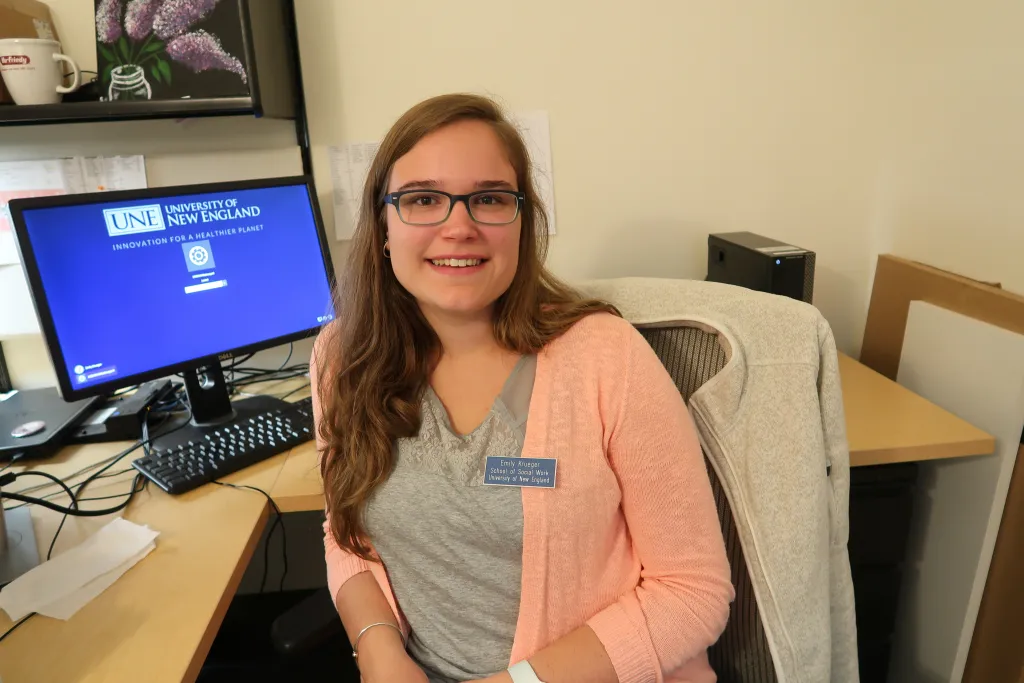Interprofessional education opportunities being expanded at the Oral Health Center

During a visit to the Oral Health Center (OHC), you’ll find more than just College of Dental Medicine students.
Dental Hygiene, College of Osteopathic Medicine and Social Work students are also there learning about dentistry and how to work side-by-side with colleagues in other professions. Soon students from the College of Pharmacy and Physician Assistant program will join them.
“We encourage students from different professions to work together and learn together,” explained Fields Farrior, D.M.D., M.S., associate dean of Clinical Education and Patient Care at the OHC.
In the dental clinic area you can find a dental student showing medical students how to perform a head and neck examination.
“If we can teach medical students the types of care traditionally done in dental medicine, then they can achieve better patient outcomes when they get out into practice,” Farrior commented.
One floor down a social work student is helping to ease a patient’s anxiety.
“We learn from the medical and dental students about the terminology they use and what they’re seeing in a patient, then go back and have those conversations with the patient,” said Masters of Social Work student Emily Krueger.
In turn, Krueger can help the providers better understand the patient.
“We could be dealing with patients who are experiencing homelessness, substance abuse or perhaps domestic violence, and most of them are anxious about their treatment,” Krueger stated.
Ryan Healy (Osteopathic Medicine, ’23) says having a better understanding of other professions will be very helpful when he refers patients to seek care outside his medical practice.
“We need to be advising patients that just going in to see the doctor for a physical is not sufficient,” he said. “There needs to be care that goes above and beyond that. If we can help point them to those other professionals, that can only be beneficial for the patient.”
Because of its many offerings in the health professions, UNE is uniquely positioned to provide these interprofessional education opportunities for its students.
“We want them to be comfortable calling their physician colleagues to ask questions and answer questions asked of them,” Farrior explained. “Our hope is that they can get out there, and they can develop those relationships.”
